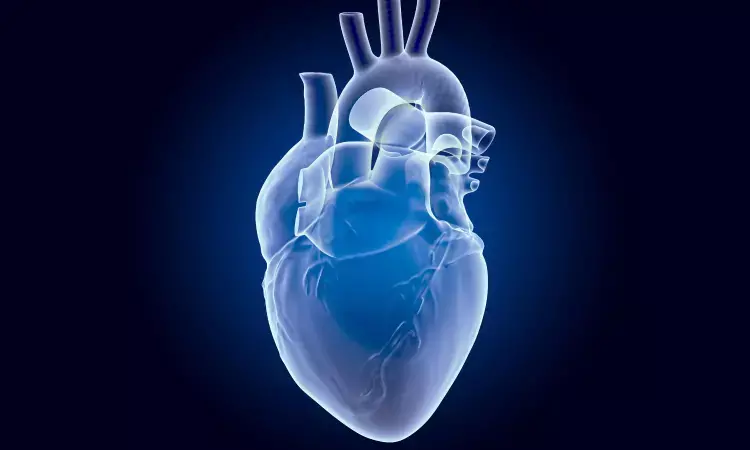- Home
- Medical news & Guidelines
- Anesthesiology
- Cardiology and CTVS
- Critical Care
- Dentistry
- Dermatology
- Diabetes and Endocrinology
- ENT
- Gastroenterology
- Medicine
- Nephrology
- Neurology
- Obstretics-Gynaecology
- Oncology
- Ophthalmology
- Orthopaedics
- Pediatrics-Neonatology
- Psychiatry
- Pulmonology
- Radiology
- Surgery
- Urology
- Laboratory Medicine
- Diet
- Nursing
- Paramedical
- Physiotherapy
- Health news
- Fact Check
- Bone Health Fact Check
- Brain Health Fact Check
- Cancer Related Fact Check
- Child Care Fact Check
- Dental and oral health fact check
- Diabetes and metabolic health fact check
- Diet and Nutrition Fact Check
- Eye and ENT Care Fact Check
- Fitness fact check
- Gut health fact check
- Heart health fact check
- Kidney health fact check
- Medical education fact check
- Men's health fact check
- Respiratory fact check
- Skin and hair care fact check
- Vaccine and Immunization fact check
- Women's health fact check
- AYUSH
- State News
- Andaman and Nicobar Islands
- Andhra Pradesh
- Arunachal Pradesh
- Assam
- Bihar
- Chandigarh
- Chattisgarh
- Dadra and Nagar Haveli
- Daman and Diu
- Delhi
- Goa
- Gujarat
- Haryana
- Himachal Pradesh
- Jammu & Kashmir
- Jharkhand
- Karnataka
- Kerala
- Ladakh
- Lakshadweep
- Madhya Pradesh
- Maharashtra
- Manipur
- Meghalaya
- Mizoram
- Nagaland
- Odisha
- Puducherry
- Punjab
- Rajasthan
- Sikkim
- Tamil Nadu
- Telangana
- Tripura
- Uttar Pradesh
- Uttrakhand
- West Bengal
- Medical Education
- Industry
C-peptide potential proxy marker for diagnosing CVDs in resource-poor settings

C-peptide has a strong association with cardiovascular risk factors. A recent study found higher C-peptide levels in patients with a history of cardiovascular diseases.
This study is published in Health Science Reports entitled Blood C-peptide concentration as a proxy marker of cardiovascular disease: An observational cross-sectional study.
Cardiovascular diseases (CVDs) are among the leading causes of disability and early death in sub-Saharan Africa. Most current blood tests for CVD diagnosis involve performing about three test profiles, often at additional cost to patients. C-peptide, a cleavage product of proinsulin, is a promising marker that has the potential to serve as a proxy marker for diagnosing CVDs in resource-poor settings.
In sub-Saharan Africa, CVDs are a major cause of disability and premature death. Many CVD blood tests require patients to undergo three test profiles, which can result in additional costs. C-peptide, a byproduct of proinsulin, is a promising diagnostic marker that may be useful in resource-poor settings as a proxy for CVD diagnosis.
The observational, cross-sectional study involved 127 individuals with CVD and 127 individuals without CVD. The study collected sociodemographic and clinical characteristics from participants. It analyzed blood levels of C-peptide, fasting plasma glucose (FPG), total creatinine kinase (CK), creatine kinase myocardial bound (CKMB), lactate dehydrogenase (LDH), propeptide of brain natriuretic peptide (PBNP), Troponin T, lipids, and biomarkers of kidney and liver function using ELISA and an automated analyzer. The study also computed insulin resistance using the modified homeostatic model assessment (HOMA-IR).
The key results of the study are:
- There were higher levels of C-peptide, CK, CKMB, troponin T, PBNP, FPG, HOMA-IR, and several selected kidney, liver, and lipid parameters in the CVD Group compared to the non-CVD Group.
- In the CVD group, Troponin T recorded a positive correlation with C-peptide.
- The sensitivity and specificity of C-peptide in identifying CVD were 96.1% and 91.3%, respectively.
Concluding further, they said in the CVD group, C-peptide levels are higher. This is a valuable biomarker in detecting cardiovascular diseases.
The study demonstrated C-peptide levels to be a good biomarker serving as a cost-effective CVD diagnostic-cum-prognostic tool, particularly in resource-limited settings.
Further reading:
https://onlinelibrary.wiley.com/doi/full/10.1002/hsr2.1535
BDS, MDS in Periodontics and Implantology
Dr. Aditi Yadav is a BDS, MDS in Periodontics and Implantology. She has a clinical experience of 5 years as a laser dental surgeon. She also has a Diploma in clinical research and pharmacovigilance and is a Certified data scientist. She is currently working as a content developer in e-health services. Dr. Yadav has a keen interest in Medical Journalism and is actively involved in Medical Research writing.
Dr Kamal Kant Kohli-MBBS, DTCD- a chest specialist with more than 30 years of practice and a flair for writing clinical articles, Dr Kamal Kant Kohli joined Medical Dialogues as a Chief Editor of Medical News. Besides writing articles, as an editor, he proofreads and verifies all the medical content published on Medical Dialogues including those coming from journals, studies,medical conferences,guidelines etc. Email: drkohli@medicaldialogues.in. Contact no. 011-43720751


